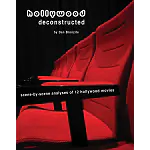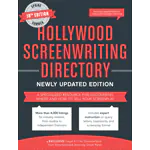Yep, they can make it – and they can break it! In one fell swoop you have to tie-up any loose ends and satisfy an audience’s expectation. Not an easy task, right? Absolutely not. In fact, as a working screenwriter I have found writing a satisfying ending to be one of the hardest parts of the creative writing process.
Don’t get me wrong, I can write endings. I can write all types of endings. Endings with a final climactic showdown between the hero and villain. Endings with a witty line that leaves the audience with a smile. Endings with a sad yet uplifting tone. I can write endings in my sleep.. but that doesn’t mean they are always going to be the best ending for the story. Perfection is hard to attain. We all try to create the perfect scene, the perfect witty banter, the perfect character arc and the perfect ending, but linking all of this together is complicated. We have to fulfill expectations on so many levels and at the same time make it original and entertaining.
And things get even more difficult when you’re trying to please a producer, director and development executive because everybody has their own ideas of what needs to transpire in the closing moments of your movie.. which by that point is technically “their” movie or optimistically “our” movie. The best advice is to keep it real and inevitable. Don’t just tag on a twist you haven’t set up. An ending needs to evolve naturally. To be organic.
If you can create an a) original ending that b) entertains but more crucially c) resolves the central character’s journey, d) hints at the theme and e) either makes you laugh, cry or leaves you wanting more then you are onto a winner. The feeling an audience needs to walk out of the movie theater with is one of “satisfaction”. Sure, they may argue about who killed who, what that blue ornament on the mantelpiece represented, and why the director filmed it in Seattle rather than London, but ultimately they need to feel intellectually content with the resolution that was presented to them.
I hate movies that either give us a predictable ending (lazy screenwriting and filmmaking) or shove a truck load of exposition down our throats just to explain the plot. If it’s that complicated then the writer has made some poor decisions somewhere down the line. If you need to telegraph to the audience that the hero or heroine has changed, through dialogue or a clunky visual device, then that’s equally as irritating.
The best endings just “feel right” when you write them and watch them. They may sometimes surprise you, not necessarily out of an intentional creative choice by the writer, but by the script itself which by the end of the story should have a life of its own. Like putting that final piece of the puzzle into place and then stepping back to take it all in for the first time, an effective ending completes the picture. And endings, like that final piece, should never need to be forced into position.. they should just slip into place as if they were always destined to be there.




